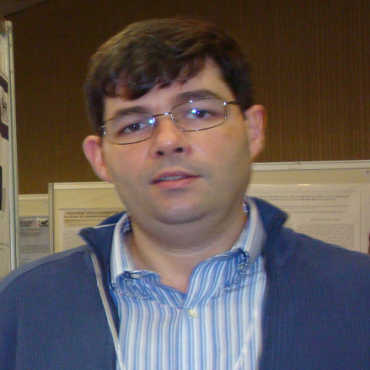
Food Chemistry 2019
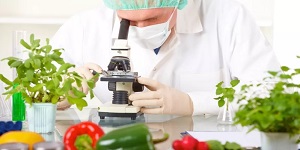
Theme: Optimizing the Trends and Techniques in Food Chemistry and Technology
7th International Conference on Food Chemistry and Technology has been scheduled during November 27-28, 2019 in Singapore City, Singapore. Food Chemistry 2019 will bring together a unique and international mix of experts like scientists, academicians, business professionals and prospective food technologists to share information and ideas about the recent advances in the food technology and the development of food quality and food safety. The conference will cover the theme- “Optimizing the Trends and Techniques in Food Chemistry and Technology”. Food Chemistry 2019 will focus on the latest provoking topics and researches emerging in the field of Food Chemistry and Technology. Food Chemistry 2019 provides a platform to all experts to put forth their research studies and experiments before a large number of individuals who have a keen interest in the field of food technology. The series of talks, poster presentations, workshops, discussions will keep participants hooked to the event and increase their interest in learning at Food Chemistry 2019.
Session 1: Food Chemistry
Basic food chemistry deals with the three primary components in food that is carbohydrates, proteins and lipids. It is the study of chemical processes and interactions of biological and non-biological components of foods. It is similar to biochemistry but also includes other areas such as water, vitamins, minerals, enzymes, food additives, flavours, and colours. Many of the chemicals found in food occur naturally and include nutrients such as carbohydrates, protein, fat, fibre and many other elements and compounds. Chemical substances generally play an important role in food production and preservation.
Food Chemistry Conference | Food Technology Conference | Food Technology Workshop | Food Chemistry Meetings | Food Technology Forum | Food Chemistry Symposium | Food Technology Congress | Nutrition and Health Conference | Food Chemistry Event | Food Processing Conference | Food Analysis Workshop
Session 2: Nutrition and Health
Nutrition is the science of food and its relationship to health. Good nutrition is fundamental for good health and the prevention, treatment and management of disease. Food plays an important role in health. Food provides us energy to promote and maintain tissue growth, and to regulate body processes. Food should supply necessary nutrients in sufficient amounts to meet the body’s needs. A healthy diet helps to protect against malnutrition as well as non-communicable diseases. Nutrients are of two types: Macronutrients and Micronutrients. Both macronutrients and the micronutrients are equally essential for good health. Each nutrient plays a significant role in the body.
Food Chemistry Conference | Food Technology Conference | Food Technology Workshop | Food Chemistry Meetings | Food Technology Forum | Food Chemistry Symposium | Food Technology Congress | Nutrition and Health Conference | Food Chemistry Event | Food Processing Conference | Food Analysis Workshop
Session 3: Food Engineering
Food engineering is a professional and scientific field related to food manufacturing that covers the practical applications of food science. The purpose of this field is to advance the implementation of efficient industrial processing in the transformation of raw materials of biological origin into edible forms, which includes packaging, storage, and distribution. Food engineering includes, the application of agricultural engineering, mechanical engineering and chemical engineering principles to food materials. Food engineers are employed in food processing, food machinery, packaging, ingredient manufacturing, instrumentation, and control.
Food Chemistry Conference | Food Technology Conference | Food Technology Workshop | Food Chemistry Meetings | Food Technology Forum | Food Chemistry Symposium | Food Technology Congress | Nutrition and Health Conference | Food Chemistry Event | Food Processing Conference | Food Analysis Workshop
Session 4: Food Additives
Food additives are chemicals added to foods to keep them fresh or to enhance their colour, flavour or texture. They may include food colourings, flavour enhancers or a range of preservatives. Food additives must be checked for their harmful effects on human health before they can be used. Toxicological tests on animals are used to determine the amount of the additive that is expected to be safe when consumed by humans. Natural food additives are always better, safer and easier than artificial food additives. The use of food additives must be controlled and monitored by effective research and governmental regulations.
Food Chemistry Conference | Food Technology Conference | Food Technology Workshop | Food Chemistry Meetings | Food Technology Forum | Food Chemistry Symposium | Food Technology Congress | Nutrition and Health Conference | Food Chemistry Event | Food Processing Conference | Food Analysis Workshop
Session 5: Dairy Science and Technology
Dairy Technology understands principles and practices involved in the production, processing and marketing of fluid milk. The dairy industry has implemented hazard analysis of critical control points (HACCP) systems. This enables quality assurance of final products via a chain management approach. Developing country growth in demand for and consumption of milk has been matched by increasing production. Growth in milk production in developing countries has significantly outpaced that in developed countries since the 1980s.
Food Chemistry Conference | Food Technology Conference | Food Technology Workshop | Food Chemistry Meetings | Food Technology Forum | Food Chemistry Symposium | Food Technology Congress | Nutrition and Health Conference | Food Chemistry Event | Food Processing Conference | Food Analysis Workshop
Session 6: Nutritional Disorders
Nutritional disorders indicate the deficiency of one or more nutrients resulting in many disturbances in the body. It is caused due to intake of insufficient food or of bound nutrients, an inability of the body to absorb and use nutrients, or by overconsumption of certain foods. Lack of nutrients can result in malnutrition, which can lead to deficiency syndromes. Excess intake of macronutrients can lead to obesity and related disorders and excess intake of micronutrients can be toxic. Also, the balance of various types of nutrients, such as how much unsaturated vs. saturated fat is consumed, can influence the development of disorders.
Food Chemistry Conference | Food Technology Conference | Food Technology Workshop | Food Chemistry Meetings | Food Technology Forum | Food Chemistry Symposium | Food Technology Congress | Nutrition and Health Conference | Food Chemistry Event | Food Processing Conference | Food Analysis Workshop
Session 7: Food Microbiology
Food microbiology is the scientific study of microorganisms, both in food and used for the production of food. This includes microorganisms that contaminate food, as well as those used in its production; for example to produce yoghurt, cheese, beer and wine. Food safety is a major focus of food microbiology. Pathogenic bacteria, viruses and toxins produced by microorganisms are all possible contaminants of food. However, microorganisms and their products can also be used to combat these pathogenic microbes. Probiotic bacteria, including those that produce bacteriocins, can kill and inhibit pathogens. Food poisoning, food spoilage, preservation of food is dealt under food microbiology.
Food Chemistry Conference | Food Technology Conference | Food Technology Workshop | Food Chemistry Meetings | Food Technology Forum | Food Chemistry Symposium | Food Technology Congress | Nutrition and Health Conference | Food Chemistry Event | Food Processing Conference | Food Analysis Workshop
Session 8: Recent Advancements in Food Technology
Recent advancements in food processing and packaging is not just to meet the productivity demands but to adopt sophisticated automation, control and monitoring methods and techniques. The novel technologies in food science enable the food sector to enhance the quality of the eatables and drinks. There are many significant amounts of processing and packaging research and developments which involve study of automation, control and monitoring. Food technologists apply their knowledge of food science to operate, design and manage the facilities and equipment involved in the processing and storage of foods.
Food Chemistry Conference | Food Technology Conference | Food Technology Workshop | Food Chemistry Meetings | Food Technology Forum | Food Chemistry Symposium | Food Technology Congress | Nutrition and Health Conference | Food Chemistry Event | Food Processing Conference | Food Analysis Workshop
Session 9: Food Toxicology
Food toxicology studies how natural or synthetic poisons and toxicants in diverse food products cause harmful, detrimental, or adverse side effects in living organisms. Food Toxicology covers various aspects of food safety and toxicology, including the study of the nature, properties, effects, and detection of toxic substances in food and their disease manifestations in humans. The field includes studies of human health impacts of food containing environmental contaminants or natural toxicants.
Food Chemistry Conference | Food Technology Conference | Food Technology Workshop | Food Chemistry Meetings | Food Technology Forum | Food Chemistry Symposium | Food Technology Congress | Nutrition and Health Conference | Food Chemistry Event | Food Processing Conference | Food Analysis Workshop
Session 10: Food Waste Management
Food waste related issues in developing countries is currently considered to be a major threatening factor for sustainable development and food waste management systems. The causes of food waste are numerous, and occur at the stages of production, processing, retailing and consumption. The disposal of food waste is a large environmental problem. Lack of proper storage and over-purchase and overproduction of food results in a monumental amount of food being wasted. Looking at the statistics, wastage is one of the leading causes escalated food costs and diminishing revenue.
Food Chemistry Conference | Food Technology Conference | Food Technology Workshop | Food Chemistry Meetings | Food Technology Forum | Food Chemistry Symposium | Food Technology Congress | Nutrition and Health Conference | Food Chemistry Event | Food Processing Conference | Food Analysis Workshop
Session 11: Food Analysis and Quality Control
Food analysis is the field that deals with the development, application and study of analytical procedures for characterizing the properties of foods and their constituents. By analysis, information about the different characteristics of foods, including their composition, structure, physicochemical properties and sensory attributes can be obtained. All food products require analysis at various stages starting from reception of raw materials through production and even after the product reaches the market. Food quality refers to the characteristics of food that is desirable and acceptable to consumers. It can be physical, chemical or sensory. Quality control in a food processing system begins right from the stage of food production till the stage of its sale and distribution.
Food Chemistry Conference | Food Technology Conference | Food Technology Workshop | Food Chemistry Meetings | Food Technology Forum | Food Chemistry Symposium | Food Technology Congress | Nutrition and Health Conference | Food Chemistry Event | Food Processing Conference | Food Analysis Workshop
Session 12: Food Processing, Preservation and Packaging
Food processing, preservation and packaging of foods is undertaken to prevent spoilage by microorganisms, as well as enzymes, temperature, and biochemical changes and impart a keeping quality or shelf-life to foods. The principle reason for processing food is to make it microbiologically safe to eat. Processing foods can transform unacceptable raw materials into desirable products. Packaging being an integral part of the processing and preservation of foods can influence physical and chemical changes, including migration of chemicals into foods. Food preservation includes preventing the growth of bacteria, fungi or other micro-organisms as well as retarding the oxidation of fats that cause rancidity thus promoting longer shelf life and reduced hazard from eating the food. Food preservation is to stop or slow down the spoilage of food, loss of quality and edibility of food for longer time.
Industrialized countries are facing a serious period of economic crisis with rising prices and scarcity of raw ingredients that gives rise to fraud and adulteration. Therefore, the continuous development of strategies for improving the safety, quality, and integrity of food is a connecting point between the needs of the food industry and the objectives of research centres. The hard competition in the food global market may lead some companies to look for cheaper but illegal raw materials.
Worldwide, food safety is a huge concern for users owing to the stable danger of food-borne diseases, thereby having a towering effect on food safety testing market. Food safety testing is essential to attain a certificate of analysis of ready-to-eat foods and raw food items at various phases of food processing. Users are offered with food safety tags on food items to ensure safety and quality of food items. This in turn has elevated the significance of the global food safety testing market.
As per the analysts, the worldwide requirement for food safety testing market was capitalized at USD 4.8 Billion in 2015. This is likely to cross USD 8.04 Billion by the end of 2021 and is expected to jump at a CAGR of 7.8% from 2016 to 2021.
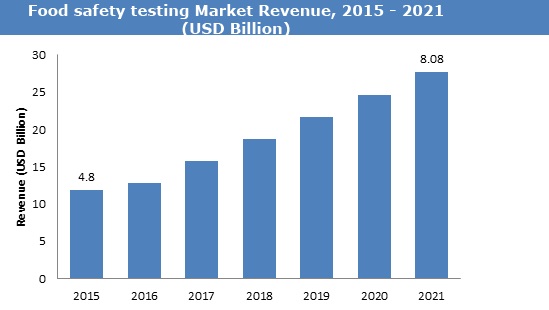
Over the next forty years, there is seen a steady climb in the growth of food demand as indicated below-
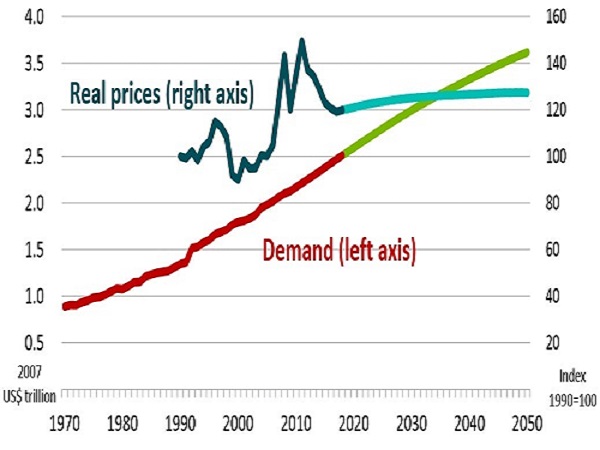
By 2030, global food demand is expected to rise by 35%. The vast majority of additional food will need to come from increases in the yield achieved, or reductions in food waste.
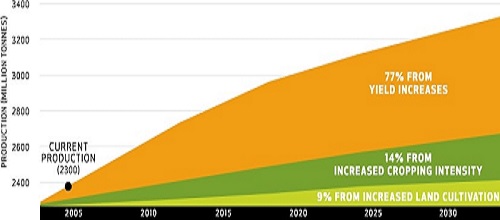
The proportions of animal-derived foods in human diets are expected to change little in the years to 2030. However, the total increase in demand for these foods in Africa and Asia will be very large due both to the increasing numbers of people in these regions and to the increasing numbers of people in these regions with a bit of disposable income to spend on such foods.
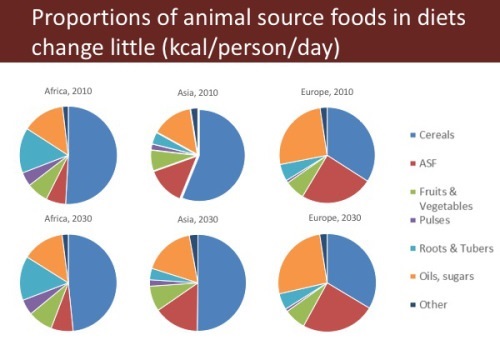
The four dimensions of the solutions needed to meet the rising global demand for livestock-derived foods in responsible, efficient and sustainable ways are outlined as-
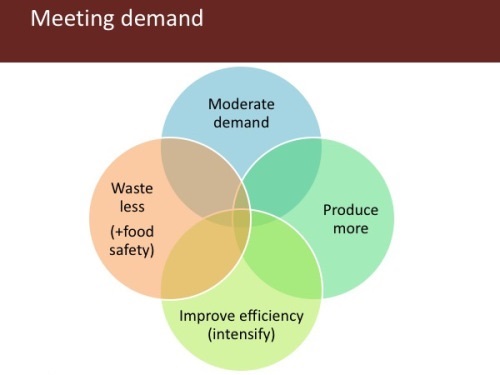
It is estimated that about one-third of the food produced world-wide is wasted. An estimated 61% of food waste occurs in the agricultural sector and in private consumption, 22% in the processing industry, 13% in the catering trade and 4% in the large supermarket chains.
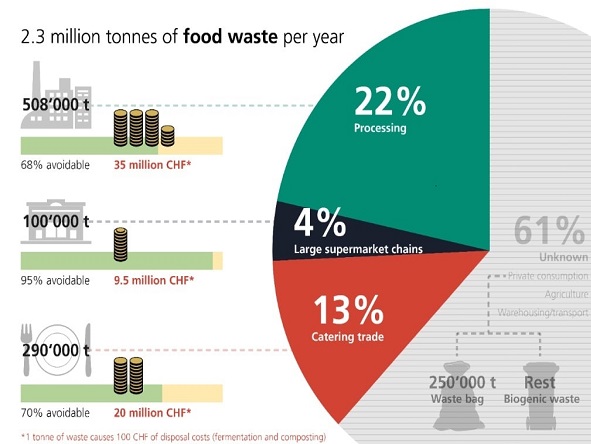
Major Universities associated with food chemistry and technology-
- University of Wageningen, Netherlands
- Jiangnan University, China
- China Agricultural University, China
- South China University of Technology, China
- Ghent University, Belgium
- Zhejiang University, China
- University of Sao Paulo, Brazil
- University of Campinas, Brazil
- University of Massachusetts Amherst, USA
- University of California, Davis, USA
- Nanjing Agricultural University, China
- University of Porto, Portugal
- University of Copenhagen, Denmark
- University of Guelph, Canada
Major industries associated with food chemistry and technology-
- Ainsleys, UK
- B&G Foods Holdings Corp., New Jersey
- Born Feinkost, Germany
- ConAgra Foods, Nebraska
- Cowgirl Creamery, USA
- Flowers Foods, USA
- Nestlé, Switzerland
- National Foods, Australia
- Pillsbury Company, USA
- Pinnacle Foods, New Jersey
- Turtle Island Foods, USA
- Dan-D Foods, Canada
- Amoy Food, China
- Alter Eco, France
- Food Chemistry
- Nutrition and Health
- Food Engineering
- Food Additives
- Dairy Science and Technology
- Nutritional Disorders
- Food Microbiology
- Recent Advancements in Food Technology
- Food Toxicology
- Food Waste Management
- Food Analysis and Quality Control
- Food Processing, Preservation and Packaging
- Journal of Food and Nutritional Disorders




